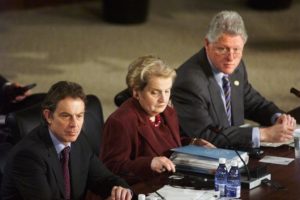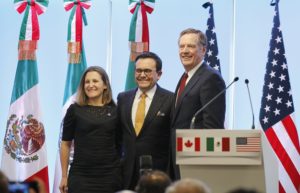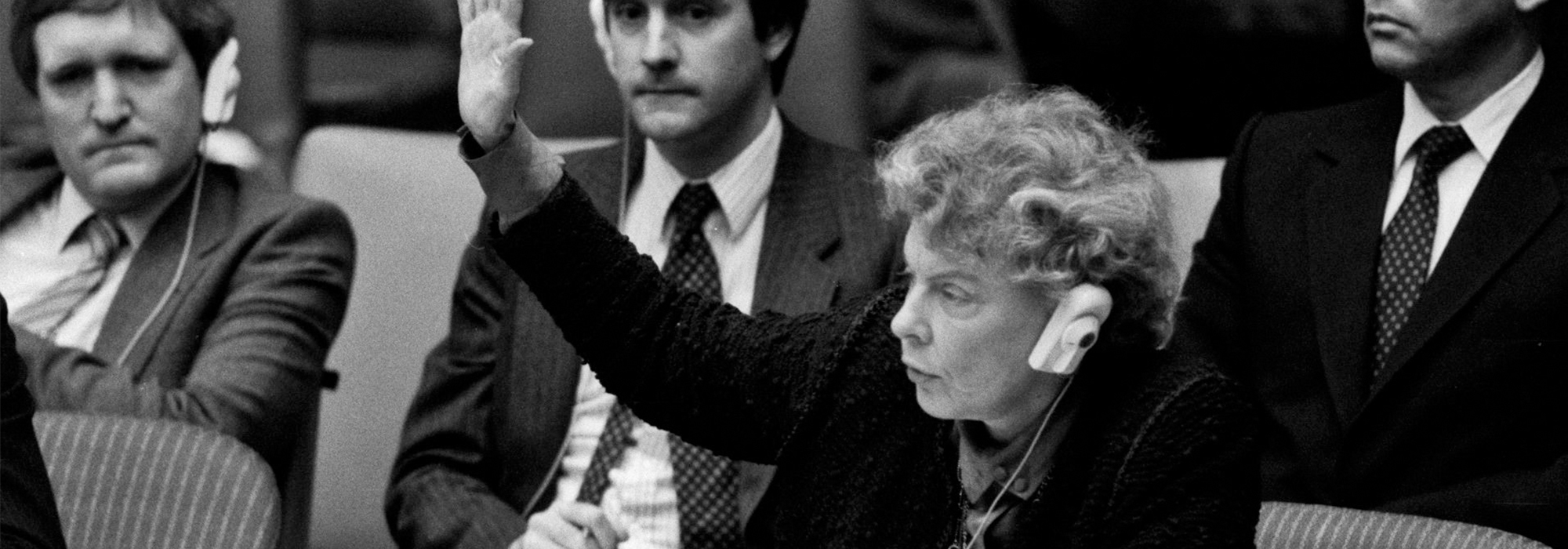
Annual events provide a useful opportunity to question the routines we grow accustomed to throughout the year. My suggestion for International Women’s Day (IWD) 2019 is to reconsider a pattern so deeply engrained in our repertoires that we hardly give it much thought. I propose that we abandon the practice of ignoring or demeaning the contributions of women to international affairs.
“What women?” you might well ask. “What contributions?”
These questions speak to our collective failure to recognize the basic presence – let alone the profound impact – of female leaders since ancient times. We may have absorbed vague snippets of information about Cleopatra’s romantic entanglements, Boudica’s exploits on a chariot or Catherine the Great’s art collection. What our limited knowledge obscures are their transformative acts that commanded armies, challenged empires and shaped world history.
In my recently published book, titled Women as Foreign Policy Leaders, I show how contemporary political analysis treats female decision-makers with such disdain that they either disappear from the public record or else are dismissed as poorly equipped for their jobs.
My study examines four American trailblazers, beginning with Jeane Kirkpatrick, who served during the early 1980s as the first woman ambassador from the United States to the United Nations. Kirkpatrick was the main architect of what became the Reagan Doctrine in American foreign policy, an approach that stood out for its unflinching opposition to communism and, in particular, to growing Soviet influence in Afghanistan, Central America, Africa and international organizations like the UN. Yet a number of major accounts of diplomacy in the Reagan years fail to even mention Kirkpatrick’s presence.
A somewhat different pattern emerges in studies of the presidency of Bill Clinton, in which Madeleine Albright served as UN ambassador and secretary of state. She argued forcefully for NATO intervention in Bosnia and then Kosovo – and succeeded, despite persistent opposition from the president’s top military advisors.

While Albright’s presence is acknowledged in most accounts of diplomacy in the 1990s, her approach is often seen as defective. Some analysts consider her as ‘underpowered’ for the job; that is, they claim she lacked core attributes necessary to perform her role well. This narrative can be identified, for instance, in portrayals of Albright as emotional and impatient. Other observers maintain she was ‘overpowered’ in that she possessed too much of the requisite characteristics. We find, for instance, descriptions of Albright as overly confident in her own abilities.
I’ve documented overpowered and underpowered conclusions in accounts of Condoleezza Rice as George W. Bush’s national security advisor and secretary of state. More recently, during the first Obama administration, an influential columnist returned to the overpowered trope in describing Secretary of State Hillary Clinton and other senior women in the foreign policy team as “militaristic muses” and “Furies” who bossed around an impressionable president.
Lest we ignore current circumstances in Canada, it’s worth reflecting on responses to our own foreign minister, Chrystia Freeland.
Freeland commented in August 2018 about the need for Saudi Arabia to release imprisoned human rights activists. Within days, she was condemned by a British Columbia newspaper columnist for committing “one of the worst diplomatic gaffes in recent times.”
A foreign affairs specialist told a major national daily newspaper that her actions amounted to “amateurish stumbling about,” while the senior columnist who wrote the article described Freeland as “mishandling” the situation and contributing to “general Liberal incoherence on foreign policy.”

This critical tone only intensified in the run-up to the announcement of a new continental free trade deal. Canadians were told early last autumn by unnamed sources that the lead U.S. negotiator didn’t like Freeland. Then US President Trump stated at a press conference in New York: “We’re very unhappy with the negotiations and the negotiating style of Canada – we don’t like their representative very much.”
My research on earlier leaders suggests the negative assessments of Freeland will persist no matter how central her actions are to the Trudeau government’s international affairs legacy. Some commentators will maintain Freeland wasn’t tough enough in handling Saudi Arabia, the United States-Mexico-Canada Agreement (USMCA) trade negotiations and other files. The opposite view will prevail in accounts that portray her as, for whatever reason, overpowered for the job.
We may profoundly disagree with Freeland’s substantive directions as well as those of other courageous women in public life. In fact, the health of our democratic system requires that we express openly our views on the wisdom of her actions, and those of all her colleagues in executive office.
But let’s turn a page on the demeaning personal commentaries. Let’s accord Freeland, as well as other women leaders, the respect they have earned and at the very least recognize their contribution to the making of foreign policy.
This article is part of the Changing the way we talk about women in politics special feature.
Photo: Former US Ambassador to the United Nations Jeane J. Kirkpatrick raises her hand to veto a Security Council resolution condemning Israel’s crackdown in southern Lebanon on March 12, 1985. (AP Photo/Marty Lederhandler/File)
Do you have something to say about the article you just read? Be part of the Policy Options discussion, and send in your own submission. Here is a link on how to do it. | Souhaitez-vous réagir à cet article ? Joignez-vous aux débats d’Options politiques et soumettez-nous votre texte en suivant ces directives.









